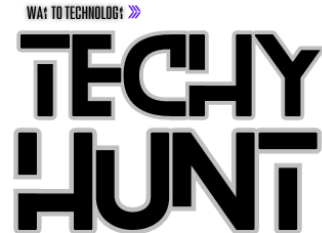Explore the myriad advantages of blockchain technology in this comprehensive composition. Discover how blockchain is revolutionizing colourful diligence
and reshaping the future of digital deals. In recent times, blockchain technology has surfaced as a revolutionary force with the eventuality to transfigure colourful sectors of frugality.
Firstly conceptualized as the underpinning technology for cryptocurrencies like Bitcoin, blockchain has since evolved into a protean tool with operations far beyond digital currencies.
Its decentralized and tamper-resistant nature offers multitudinous benefits across diligence, ranging from finance and force chain operation to healthcare and beyond. In this composition, we claw deep into the transformative advantages of blockchain technology, pressing its impact on effectiveness, translucency, security, and invention. effectiveness
improvement One of the foremost benefits of blockchain technology lies in its capability to streamline processes and ameliorate effectiveness. Traditional styles of record-keeping and sale processing frequently involve interposers, leading to detainments, crimes, and fresh costs. With blockchain, deals are recorded on a distributed tally that’s accessible to all
parties involved. This eliminates the need for interposers, thereby reducing processing times and lowering sale freights.
Whether it’s transferring finances, managing force chains, or vindicating individualities, blockchain simplifies and accelerates processes, enabling businesses to operate more efficiently.
Translucency and Trust Translucency is a foundation of blockchain technology, offering unknown visibility into deals and data. Each sale recorded on the blockchain is inflexible and transparent, meaning it can not be altered or deleted retroactively. This translucency fosters trust among actors, as they can corroborate the integrity of deals singly. In diligence similar to finance and healthcare, where trust is consummate,
blockchain offers a dependable result for icing translucency and responsibility. Also, blockchain’s decentralized nature eliminates the threat of a single point of failure, enhancing adaptability and trust in the system.
Enhanced Security Security is another compelling advantage of blockchain technology, driven by its cryptographic algorithms and decentralized armature. Unlike centralized databases vulnerable to cyber-attacks and data breaches, blockchain networks are largely secure and resistant to tampering. Each block in the chain is cryptographically linked to the former one, creating a tamper-apparent record of deals. likewise, agreement mechanisms similar to Proof of Work( PoW) and evidence of Stake( PoS) ensure the integrity of the network by taking actors to validate deals through computational or stake-grounded impulses.
By using these security features, blockchain mitigates the pitfalls associated with fraud, hacking, and unauthorized access, bolstering confidence in digital deals. Cost Reduction In addition to effective earnings and enhanced security, blockchain technology offers significant cost savings for businesses across colourful sectors.
By barring interposers and streamlining processes, blockchain reduces overhead costs associated with sale freights, conciliation, and compliance. also, the robotization enabled by smart contracts — a tone- executing law stored on the blockchain — further reduces functional costs by automating routine tasks and administering predefined rules. As a result, associations can achieve lesser cost-effectiveness and allocate coffers more effectively, driving profitability and competitiveness in the request.
Innovation Catalyst Blockchain technology catalyzes invention, unleashing new openings and business models across diligence. Its decentralized and programmable nature enables the development of decentralized operations( DApps) and smart contracts, paving the way for innovative results in areas similar to decentralized finance( DeFi), force chain operation, and digital identity. With blockchain, inventors can produce permissionless and interoperable platforms that empower druggies to distribute and interact without counting on centralized authorities.
This democratization of technology fosters a vibrant ecosystem of invention, where ideas can flourish and disrupt traditional paradigms.
Supply Chain Traceability Supply chain operation stands to profit significantly from blockchain technology, particularly in terms of traceability and translucency. By recording every sale and movement of goods on a blockchain tally, companies can track the trip of products from the source to the end consumer with unknown delicacy. This position of translucency not only enhances visibility into the force chain but also enables quick and targeted responses to issues such as product recalls, fake goods, and ethical sourcing. also, blockchain facilitates the verification of product authenticity and compliance with nonsupervisory norms, thereby perfecting consumer trust and brand character.
Decentralized Finance( DeFi) Decentralized finance, or DeFi, represents a paradigm shift in the way fiscal services are penetrated and delivered, powered by blockchain technology. Unlike traditional fiscal systems controlled by banks and interposers, DeFi platforms operate on decentralized networks, allowing druggies to pierce a wide range of fiscal services without the need for interposers. These services include lending, borrowing, trading, and asset operation, all eased by smart contracts and blockchain protocols. By standardizing access to fiscal services and barring walls to entry, DeFi has the implicit to foster fiscal addition and empower individualities worldwide.
Digital Identity Management Blockchain technology offers a secure and effective result for managing digital individualities, addressing enterprises related to sequestration, security, and identity theft. With blockchain-grounded identity operation systems, individuals can control their particular information and entitlement warrants widely to third parties. This not only enhances sequestration and data security but also streamlines identity verification processes, reducing the threat of fraud and identity theft. also, blockchain enables the creation of tone-autonomous individualities, where individualities have full power and control over their digital individualities, free from reliance on centralized authorities.
Conclusion
In conclusion, blockchain technology holds an immense pledge as a transformative force with the eventuality to revise colourful aspects of frugality. From enhancing effectiveness and translucency to bolstering security and fostering invention, blockchain offers a myriad of benefits across diligence. By using its decentralized and tamper-resistant nature, businesses can streamline processes, reduce costs, and unleash new openings for growth and invention. As blockchain continues to evolve and develop, its impact on global frugality is anticipated to grow exponentially, reshaping the future of digital deals and driving towards a more decentralized and inclusive fiscal ecosystem.


2 Comments
I don’t think the title of your article matches the content lol. Just kidding, mainly because I had some doubts after reading the article.
Pingback: Discover the Future of Finance with Coyyn.com - TechyHunt